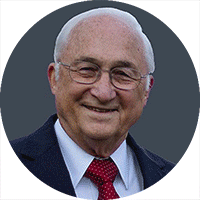The Business Case for a Common Language: Not "If," but "What and When?"
Summary:
While most people don't think about it very often, common language is essential to day-in, day-out commerce. Companies and others employ standards to ensure that a meter is the same length world-wide, calendars ensure that everyone shows up for meetings at the same time, and everyone agrees what "payment in US dollars" means. It is trite, but no less important, to note that without some common language, commerce would be impossible. At the same time, most language is imprecise, complicating work life in countless ways. Leaders struggle to answer basic questions like "how many customers do we have?" Managers find it tough to work across departmental silos, and technologists spend more time dealing with "systems that don't talk" than they do implementing new technologies.
With just a few moments reflection, most people can identify several ways their work would improve with a common language. Yet few business leaders and strategists fully appreciate the range and extent of these benefits. In this report, a team of renowned authorities on architecture and business best practices will close that gap.
While most people don't think about it very often, common language is essential to day-in,
day-out commerce. Companies and others employ standards to ensure that a meter is the
same length world-wide, calendars ensure that everyone shows up for meetings at the same
time, and everyone agrees what "payment in US dollars" means. It is trite, but no less
important, to note that without some common language, commerce would be impossible.
At the same time, most language is imprecise, complicating work life in countless ways.
Leaders struggle to answer basic questions like "how many customers do we have?"
Managers find it tough to work across departmental silos, and technologists spend more
time dealing with "systems that don't talk" than they do implementing new technologies.
Most of the added effort needed to accommodate the lack of common language has become
so embedded in work life that people don't even notice it.
With just a few moments reflection, most people can identify several ways their work would
improve with a common language. Yet few business leaders and strategists fully appreciate
the range and extent of these benefits. If nothing else, in this report we will close that gap.
The paper presents the following:
-
The meaning of "common language"
- Five short case studies of successful development and implementation of common language
- Detailed illustrations of the business benefits of common language
- The "What and When?" of a common language
- Senior management responsibility for common language
Download the full paper here: http://www.brcommunity.com/a2021/c064.pdf
# # #
Standard citation for this article:

David C. Hay, Dr. Thomas C. Redman, C. Lwanga Yonke, & John A. Zachman , "The Business Case for a Common Language: Not "If," but "What and When?""
Business Rules Journal, Vol. 22, No. 3,
(Mar. 2021)
URL: http://www.brcommunity.com/a2021/c064.html
About our Contributor:

David C. Hay, Dr. Thomas C. Redman, C. Lwanga Yonke, & John A. Zachman
,
David C. Hay
David Hay has been producing data models to support strategic and requirements planning for more than thirty years. As President of Essential Strategies International, Mr. Hay has worked in a variety of industries and government agencies. These include banking, clinical pharmaceutical research, and all aspects of oil production and processing. Projects entailed defining corporate information architecture, identifying requirements, and planning strategies for the implementation of new systems.
Mr. Hay's most recent book, "Achieving Buzzword Compliance: Data Architecture Language and Vocabulary," applies the concepts of consistent vocabulary to the data architecture field itself.
Previously, Mr. Hay wrote, "Enterprise Model Patterns: Describing the World," an "upper ontology" consisting of a comprehensive model of any enterprise. It is the successor to his ground-breaking 1995 book, "Data Model Patterns: Conventions of Thought"—the original book describing standard data model configurations for standard business situations.
In addition, Mr. Hay has written other books on metadata, requirements analysis, and UML. He has spoken at numerous international and local data architecture, semantics, user group, and other conferences.
Dr. Thomas C. Redman
Dr. Thomas C. Redman, "the Data Doc", helps start-ups and multinationals, ++9senior executives, Chief Data Officers, and leaders buried deep in their organizations chart their courses to data-driven futures, with special emphasis on quality and analytics. He can be reached at info[at]dataqualitysolutions[dot]com.
C. Lwanga Yonke
A seasoned information quality practitioner at Aera Energy LLC, C. Lwanga Yonke has successfully led teams in multiple areas including data architecture, data warehousing, business intelligence, information quality, and data governance. His initial experience is in petroleum engineering and operations.
He is a founding member of IQ International (prev. IAIDQ) and served as a volunteer and advisor to its Board for Directors for many years.
John A. Zachman
John Zachman is the originator of the "Framework for Enterprise Architecture" (The Zachman Framework™) which has received broad acceptance around the world as an integrative framework, an ontology for descriptive representations of Enterprises. Mr. Zachman is not only known for this work on Enterprise Architecture, but is also known for his early contributions to IBM's Information Strategy methodology (Business Systems Planning) as well as to their Executive team planning techniques (Intensive Planning).
Mr. Zachman retired from IBM in 1990, having served them for 26 years. He is Chief Executive Officer of his own education and consulting business, Zachman International® and Owner and Executive Director of the Federated Enterprise Architecture Certification Institute in Washington, D.C.
Mr. Zachman has been focusing on Enterprise Architecture since 1970 and has written extensively on the subject. He has directed innumerable executive team planning sessions. He travels nationally and internationally, teaching and consulting, and is a popular conference speaker, known for his motivating messages on Enterprise Architecture issues. He has spoken to many thousands of enterprise managers and information professionals on every continent. Read All Articles by David C. Hay, Dr. Thomas C. Redman, C. Lwanga Yonke, & John A. Zachman











